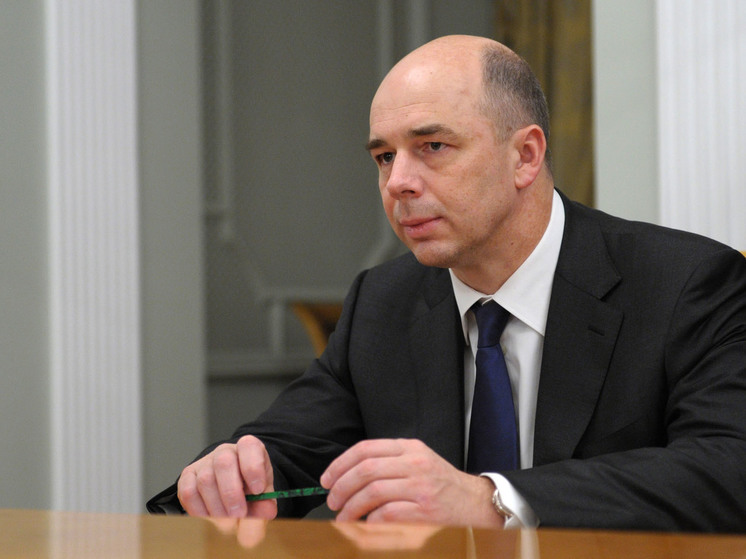The rich should pay more
The expert council under the State Duma Committee on Budget and Taxes did not shed any light on the parameters for adjusting the tax system of the Russian Federation. Which Russians will pay the increased personal income tax and how much the income tax for business will increase remains unknown. Deputies promised to continue the discussion at parliamentary hearings on Thursday: perhaps by this time the Ministry of Finance will finally be ready to show its cards.

The first public discussion of amendments to tax legislation caused a real sell-out in the State Duma. The Budget Committee meeting room looked like a subway car at rush hour: deputies, officials and invited experts sat huddled close to each other, with numerous journalists hovering over them like a swarm of bees. The role of the driver was played by the head of the committee, Andrei Makarov, who immediately set the direction of the discussion and masterfully slammed on the brakes when it went somewhere wrong. Finance Minister Anton Siluanov greedily drank raw water — the room was indeed very stuffy.
The key word that was heard during the discussion of the upcoming changes was “fairness.” Without exception, all those present agreed that the main goal of introducing a progressive scale and other innovations was to make the tax system in the Russian Federation more fair. The rich should pay more. And at the same time see what the authorities spend the additional income they receive on. However, as Mr. Makarov correctly noted, “fairness is a complex concept”: when you give away something of your own for free, it always seems not entirely fair.
Anton Siluanov, from whom many (at least journalists) expected specifics on personal income tax, limited himself to general calculations. The head of the Ministry of Finance promised that “the progressive scale will not affect the majority of citizens,” and the settings provided for business will not affect 95% of SMEs. Tax innovations, according to him, are designed primarily for those who earn a lot. While the vast majority of Russians will be the beneficiaries. “The state will use the funds received to increase social benefits, pensions, and support for motherhood and childhood. It will also invest in infrastructure, housing construction, roads and business support measures,” Siluanov listed, clarifying that only those who do not withdraw funds to offshore companies and do not save for “eating” will be able to count on support. The government expects entrepreneurs to invest in priority areas and home regions. In addition to support for “good” businesses, a tax amnesty has been promised. To do this, companies must demonstrate a willingness to work “white” and refuse fragmentation in order to minimize taxes. It is almost impossible to hide from the all-seeing digital eye of the Federal Tax Service, warned Siluanov.
Representatives of business associations seem to have already come to terms with the inevitable adjustment of the tax system. There were no objections from their side. And specifics, however, too. Based on individual remarks, one could guess that the income tax would be increased, and small businesses would be transferred from “simplification” to the general taxation system.
The main request of entrepreneurs to the authorities: to accept all planned changes in the spring session, but so that the innovations come into force on January 1, 2025. “Businesses and citizens should have six months to prepare,” said the head of the Russian Union of Industrialists and Entrepreneurs, Alexander Shokhin. Chairman of Opora Rossii Alexander Kalinin, in turn, asked to fix the new taxation system for at least 6 years. Predictability is the key to effective planning, he explained. Nevertheless, this time there was no “Yaroslavna’s cry” that accompanies all discussions between business and the Ministry of Finance. Taking advantage of the opportunity, entrepreneurs asked officials to streamline decision-making on non-tax payments, or better yet, “introduce” such payments into the fiscal system.
“Thank you for inviting people to the discussion!” — Secretary of the Public Chamber Lidiya Mikheeva began her speech at the meeting. According to her, Andrei Makarov was not entirely right when he said that Russians do not like to pay taxes. This may once have been true, but “we now live with the idea that the common good requires public effort.” In other words: the rich will be happy to pay higher taxes. Another question is who the authorities will consider rich. “The average salary in the Altai Territory is 40 thousand rubles, and in Moscow — 130 thousand rubles. In such conditions, the question of a fair rate will not be easy,” Mikheeva began to reason. However, Mr. Makarov gently asked her to discuss these and other nuances on the platform of the Public Chamber itself.
According to Kalinin, when introducing a progressive personal income tax scale, the main thing is not to go too far. “At a high level, people will take salaries into the shadows and the tax situation may roll back,” the expert believes. He also recalled the authorities’ promise not to change the tax on professional income (i.e. for the self-employed) until 2028. This system currently covers 10 million people in the Russian Federation.


